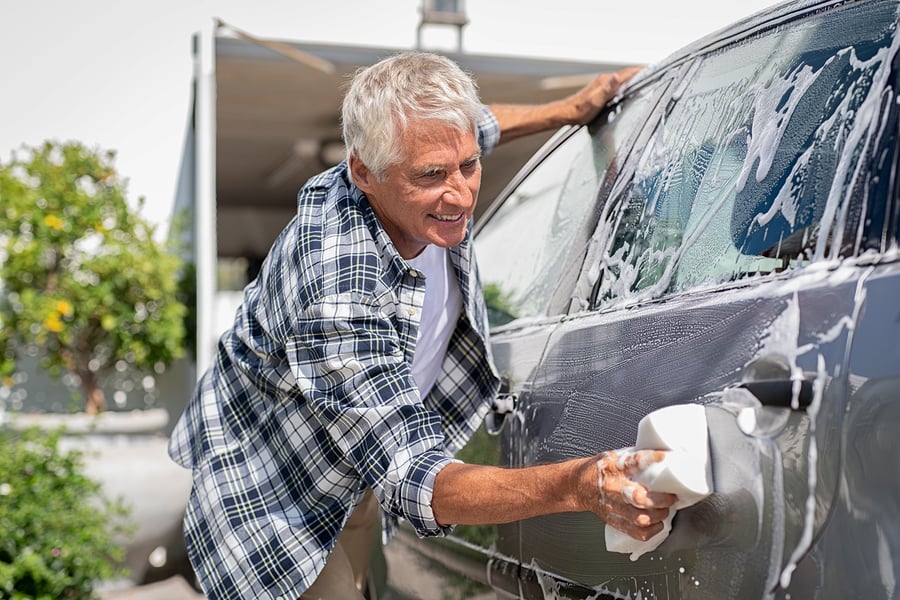Tips on how to look after your vehicle while staying at home
With the over 70’s and those with underlying health conditions self-isolating and the rest of the country following the government advice to stay at home, many of us will be wondering how best to look after our cars.
Vehicles are not made for standing around for a long period of time unused, so here are a few things to check and do to keep your car roadworthy:
Batteries
Most modern cars with a healthy battery will start to lose their charge in around 2 weeks but if there is any doubt about the condition of the battery then your vehicle should be started once a week just to be safe.
If you are able then connect your car’s battery to a mains-powered battery maintainer, if you can’t then your vehicle will need to be started and run for around 15 minutes. This will re-charge the battery and help keep the engine in good condition.
Never leave your vehicle unattended whilst running and keep any eye on instrument warning lights and the engine temperature gauge. It is also dangerous to run a car engine inside your house garage as the exhaust fumes can be toxic.
Electric vehicles and hybrids have 12-volt batteries, the same as conventional cars. However, they charge differently. Pressing the start button, so the ready light comes on, will operate the charging system. Doing this for 10 minutes once a week should keep the 12-volt battery topped up. Some electric and plug-in hybrid vehicles can maintain their 12-volt batteries if they’re plugged in to the mains charger. Check your vehicle handbook for details on this.
Tyres
Tyres will go flat after a period of standing and may get flat spots so periodically move your car even just a few inches forwards or backwards so the vehicle is not sitting in the same spot on the tyre.
Tyre pressures should be checked approximately every 2 weeks and inflated if needed.
Brakes
When a vehicle has been standing for a long period with the parking brake on, the brakes can seize. To prevent this, it’s good practice to release the parking brake and move the vehicle a short distance back and forth, at the same time as running the engine.
Don’t be alarmed if the brakes make a noise when applied for the first few times if the vehicle has not been used for a while, just drive carefully and test the brakes as soon as possible. Make sure you use your brakes for the first few miles to clean off any corrosion.
What if my car needs an MOT?
The government have granted vehicle owners a 6-month exemption from MOT testing from 30th March 2020.
Vehicles must be kept in a roadworthy condition, and garages will remain open for essential repair work. Be aware that drivers can still be prosecuted if driving unsafe vehicles.
Transport Secretary Grant Shapps said:
“We must ensure those on the frontline of helping the nation combat COVID-19 are able to do so.
Allowing this temporary exemption from vehicle testing will enable vital services such as deliveries to continue, frontline workers to get to work, and people to get essential food and medicine.
People should stay at home and avoid travel. The only reasons people should leave their homes is set out in the government guidance”
Keep your insurance
Remember that even if you’re not using it, you’ll still have to insure your car unless you make a Statutory Off Road Notification (SORN). You can only make a SORN if the car’s being kept off the road.
Don’t forget your service
It is good practice to arrange a full service once you start using your car regularly again.
Melina - Assistant Editor
Latest posts by Melina - Assistant Editor (see all)
- Banana bread with SunGold kiwis - February 20, 2025
- A tribute to Bob Marley - February 4, 2025
- Going to Work on an Egg! - January 29, 2025
- The Very Best of Petula Clark - January 14, 2025
- 50 Years of Coat Trends - January 12, 2025




















